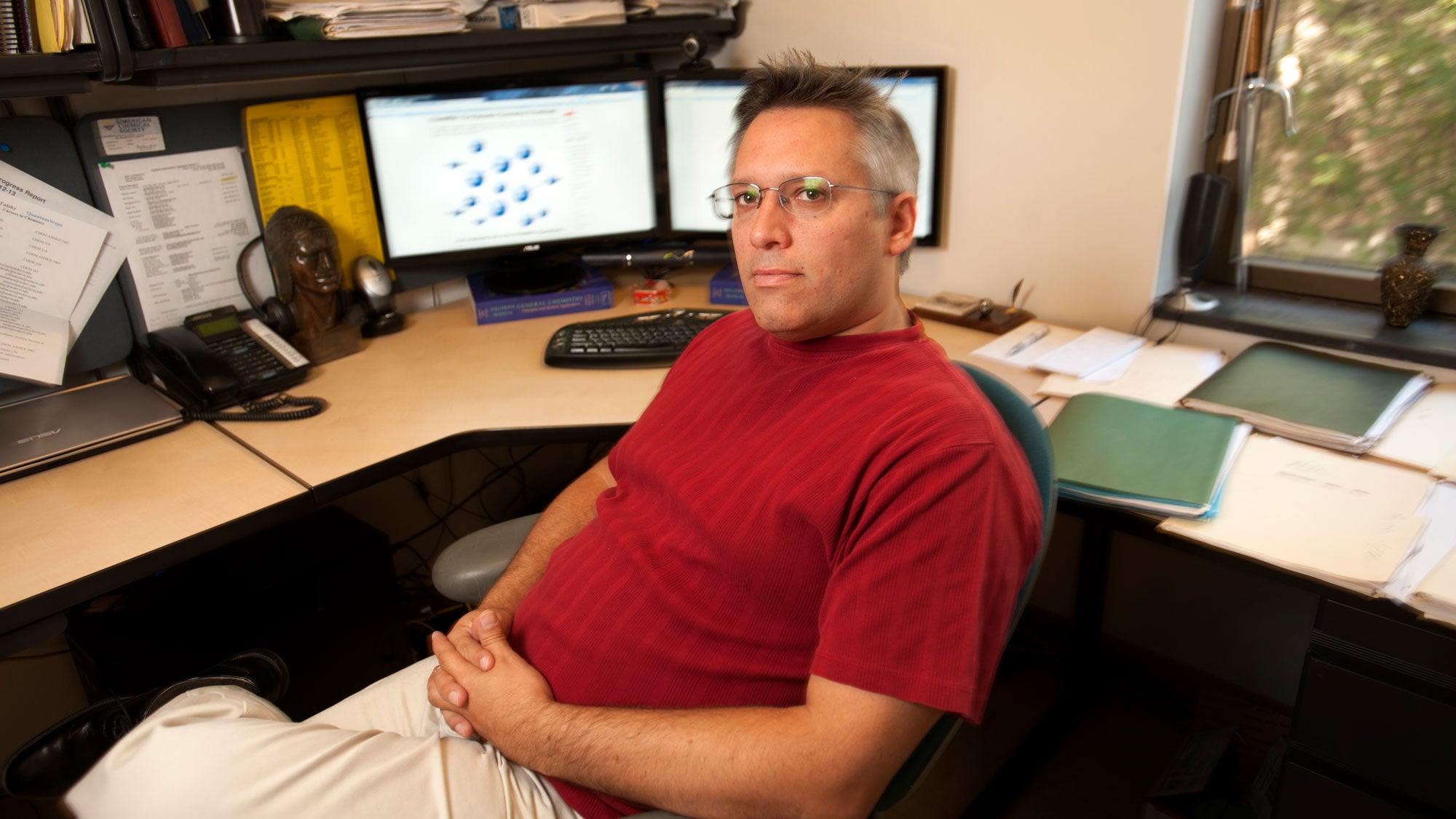Quick Summary
- Delmar Larsen’s LibreTexts adds ADAPT homework system
- ADAPT seeks to decouple homework from pricey textbooks
- System starts with chemistry, will move to other disciplines
A $4 million award from the state-funded California Education Learning Lab will help expand LibreTexts, an innovative, open education project founded by Delmar Larsen, chemistry professor in the UC Davis College of Letters and Science.
LIBRARY PROGRAM
LibreTexts is the lead partner of the UC Davis Library’s AggieOpen program that works to make college more affordable by helping instructors create, adapt and integrate open educational resources (OER) in their courses. Find out how AggieOpen can support you and your students.
LibreTexts is an online textbook platform that aims to “unite students, faculty and scholars in a cooperative effort to develop an easy-to-use online platform for the construction, customization and dissemination of open educational resources to reduce the burdens of unreasonable textbook costs,” according to the LibreTexts website.
The grant will help the LibreTexts team further develop the platform’s open homework system ADAPT, which is shorthand for “adaptive.”
“[We are] thrilled to accept this grant in order to help us grow our ADAPT homework system as it will help low-income students in every corner of the state of California,” said Larsen, who serves as the executive director of LibreTexts. “The new state funds will significantly amplify the development efforts of ADAPT and include expansion to other STEM fields.”
According to the LibreTexts team, ADAPT is designed to:
- Be extremely easy to use.
- Provide reliable and technical support for users.
- Decouple the homework system from an expensive commercial textbook, which provides teaching faculty with more flexibility in how they utilize open educational resources in their courses.

Larsen created LibreTexts in 2008 after learning that nearly one-quarter of the students in his chemistry class couldn’t afford the textbook for his course.
“The costs of textbooks and other education resources have been growing over the past four decades, but students are often using their limited finances to address other issues of arguably greater importance, like housing, food, child care, transportation and other things,” Larsen said. “Since it is important that students have access to high-quality education resources to maximize their education, the rising education resource costs are having a detrimental impact on our faculty mission.”
Education for all
LibreTexts, originally named ChemWiki, was initially bolstered by a $4.9 million grant from the U.S. Department of Education. Today, the platform boasts over 15 libraries with subjects ranging from chemistry and biology to history and Spanish, among many others. Since its creation, the LibreTexts platform has served around 223 million students, saving them an estimated $31 million and garnering 1 billion page views.
As the textbook evolves to serve the digital age, so too must the platforms for homework. And that’s where ADAPT comes in.
“ADAPT is designed to be a freely available resource to all students and faculty in the state that combines the features of multiple technologies under one umbrella interface,” Larsen said.
“This includes traditional homework assessments (both formative and summative) along with adaptive learning capabilities to allow students to guide their learning experience subject to their decisions — in short, we give students agency with [what we call] our Learning Trees.
“Moreover, we are building the Learning Trees to include broader diversity representation and to rebuild questions to support culturally relevant pedagogy. This activates a greater engagement in the learning since students’ identities are promoted.”
Initially, the new grant will be used to address equity gaps in chemistry education, but, according to LibreTexts, the long-term goal is to reduce such equity gaps in other science, technology, engineering and mathematics fields.
“It has long been recognized by governments and societies that educating our populations is of key importance for societal progress,” Larsen said. “We have to do better to address our education mission and that is what motivates the LibreTexts development team.”
Greg Watry is a content strategist and writer in marketing and communications, College of Letters and Science.
Media Resources
Dateline Staff: Dave Jones, editor, 530-752-6556, dateline@ucdavis.edu; Cody Kitaura, News and Media Relations specialist
